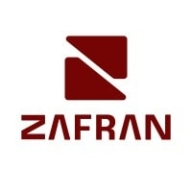


SentinelOne Singularity Identity and Strike are competing in the cybersecurity sector. Strike seems to have the upper hand due to its ease of integration and streamlined management.
Features: SentinelOne Singularity Identity includes AI-driven threat detection, robust identity protection, and security measures for complex threats. Strike emphasizes seamless integration with existing infrastructures, straightforward management, and user-friendly controls.
Ease of Deployment and Customer Service: SentinelOne Singularity Identity features an efficient deployment process backed by detailed customer service. Strike offers a faster, uncomplicated deployment with responsive customer support.
Pricing and ROI: SentinelOne Singularity Identity involves a significant initial investment, offering good ROI through enhanced security. Strike provides a cost-effective setup and quick ROI due to its practical features and easy integration.


Zafran Security integrates with existing security tools to identify and mitigate vulnerabilities effectively, proving that most critical vulnerabilities are not exploitable, optimizing threat management.
Zafran Security introduces an innovative operating model for managing security threats and vulnerabilities. By leveraging the threat exposure management platform, it pinpoints and prioritizes exploitable vulnerabilities, reducing risk through immediate remediation. This platform enhances your hybrid cloud security by normalizing vulnerability signals and integrating specific IT context data, such as CVE runtime presence and internet asset reachability, into its analysis. No longer reliant on patch windows, Zafran Security allows you to manage risks actively.
What are the key features of Zafran Security?
What benefits can users expect from Zafran Security?
In industries where security is paramount, such as finance and healthcare, Zafran Security provides invaluable protection by ensuring that only exploitable vulnerabilities are addressed. It allows entities to maintain robust security measures while allocating resources efficiently, fitting seamlessly into existing security strategies.
Singularity Identity, a component of the Singularity platform, provides threat detection & response (ITDR) capabilities to defend Active Directory and domain-joined endpoints in real-time from adversaries aiming to gain persistent, elevated privilege and move covertly. Singularity Identity provides actionable, high-fidelity insight as attacks emerge from managed and unmanaged devices. It detects identity misuse and reconnaissance activity happening within endpoint processes targeting critical domain servers, service accounts, local credentials, local data, network data, and cloud data. On-agent cloaking and deception techniques slow the adversary down while providing situational awareness and halting adversarial attempts at lateral movement. Singularity Identity helps you detect and respond to identity-based attacks, providing early warning while misdirecting them away from production assets.
Singularity Identity’s primary use case is to protect credential data and disrupt identity-based attacks. The most valuable function of Singularity Identity is its ability to misdirect attackers by providing deceptive data to identity-based recon attacks. Additionally, it can hide and deny access to locally stored credentials or identity data on Active Directory domain controllers.
Singularity Identity also provides rapid detection and respond to identity attacks, capturing attack activity and feeding it directly to the Singularity platform’s Security DataLake for enterprise-wide analysis and response.
By implementing Singularity Identity, organizations benefit from enhanced security, reduced credential-related risks, and improved user productivity. It detects and responds to identity-based attacks, ensuring only authorized individuals can access critical identity data. With its cloaking capabilities to hide identity stored locally on endpoints or in the identity infrastructure and it’s ability to provide decoy results to identity-based attacks, organizations can effectively secure their sensitive or privileged identities, resulting in improved overall identity security.
Strike provides continuous pentesting and predictive vulnerability management, leveraging autonomous technology and ethical hackers to safeguard businesses from critical threats.
As a leader in cybersecurity, Strike identifies high-impact vulnerabilities and manages risks by integrating certified ethical hackers with advanced technology. This approach ensures businesses remain secure amidst an evolving threat landscape. By focusing on critical threat identification, Strike helps organizations maintain confidence and safety in their operations.
What are the key features of Strike?In the finance industry, Strike is often used for securing sensitive data against emerging threats. In healthcare, it helps protect patient information by identifying vulnerabilities before they can be exploited. For retail, Strike strengthens transaction security and customer data protection, ensuring both compliance and consumer trust.
We monitor all Vulnerability Management reviews to prevent fraudulent reviews and keep review quality high. We do not post reviews by company employees or direct competitors. We validate each review for authenticity via cross-reference with LinkedIn, and personal follow-up with the reviewer when necessary.